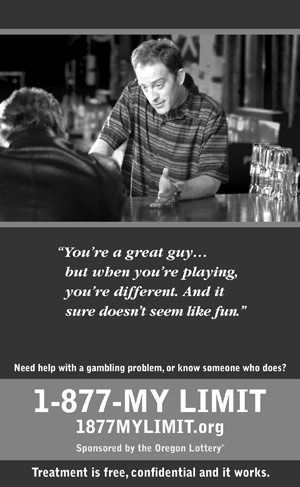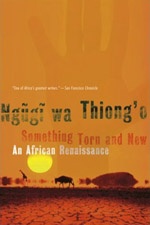 "Who am I? It's a fundamental question for everyone, of course, but for African-Americans, it has particular resonance. Since our history in America is filled with grand contradictions, marginalization, and grotesque lies, African-Americans have largely been left alone in the dark to grapple with the issue of who we are.
"Who am I? It's a fundamental question for everyone, of course, but for African-Americans, it has particular resonance. Since our history in America is filled with grand contradictions, marginalization, and grotesque lies, African-Americans have largely been left alone in the dark to grapple with the issue of who we are.
Our shared experience as people of African-American descent have been marked by an endless wave of mixed messages, leaving questions that lack finite answers. How do we declare our humanity? How do we begin to construct healthy environments for our lives, families, and communities in the face of chaos and confusion?
Compiling this book was important to me because the black community is clearly in need of healing… Family Affair is intended to facilitate conversations, spark dialogue, revive dreams, and free our individual minds. The African-American community has been mentally and spiritually fractured for much too long, and it's in need of revival and honest reflection. The voices included in this book take some steps in that direction."
Excerpted from "Family Affair: What It Means to Be African-American Today"
Attorney General Eric Holder took a lot of flak recently when he referred to America as a "nation of cowards" because we "simply do not talk enough with each other about race." The backlash emanated from the feeling of many that the election of Obama proves that we have finally achieved that post-racial society envisioned by Dr. Martin Luther King where people would be judged solely by the content of their character. The dilemma reminds me of the old joke where, finding themselves surrounded by hostile Indians, the Lone Ranger asks his trusted, native scout "What do you think we should do?" and Tonto responds, "What do you mean 'we,' white man?"
Gil Robertson, author of "Family Affair," recognized that, although Obama has generated considerable "hope for change," the fact remains that most African-American communities still exist "in a state of almost perpetual crisis... in terms of a health disparities, political injustices, crime statistics, and a plethora of social ills." So, he naturally started wondering how could the country have its first African-American President while the masses of blacks continue to struggle with so many of the same issues the Civil Rights Movement had attempted to address a half-century ago?
Rather than attempt to answer that question himself, the veteran journalist opted to pose it to a host of prominent African-Americans leaders from all walks of life. And their revealing responses, in the form of 76 enlightening, introspective essays, provide the sum and substance of Family Affair: What It Means to Be African-American Today.
Among the individuals contributing to the diversity of perspectives shared in this literary equivalent of a black group therapy session are TV-One's Cathy Hughes, Actress Tasha Smith, NAACP Hollywood Bureau Chief Vicangelo Bullock, Oscar-nominee actress Ruby Dee, Hollywood publicist/film director Ava DuVernay, actor Laz Alonso, first black supermodel Beverly Johnson, Congresswoman Carolyn Kilpatrick, Hip-Hop Doc Rani Whitfield, MD, lesbian activist Jasmyne Cannick, Professor Anthony Asadullah Samad and the late Isaac Hayes.
The touching reflections range from Mr. Bullock's heartfelt recounting of the angst involved in growing up biracial to Leslie Bardo's equally-evocative memoir of a four-year stint in Japan where her family found itself subjected to discrimination because of fear generated by stereotypical images of blacks disseminated by movies and rap videos. Congrats to Gil Robertson for not only figuring a way to take the collective pulse of African-Americana but for distilling the essence of his research into an informative and eloquent cultural tapestry destined to stand the test of time.
Kenyan Author Ngugi wa Thiong'o Releases Novel
 Renowned African author Ngugi wa Thiong'o has just released his latest book, "Something Torn and New: An African Renaissance." The novel explores the historical process of culture and language loss throughout Africa with four essays.
Renowned African author Ngugi wa Thiong'o has just released his latest book, "Something Torn and New: An African Renaissance." The novel explores the historical process of culture and language loss throughout Africa with four essays.
After he was imprisoned by the Kenyan government in the 1970s, Ngugi himself renounced the use of English in his writings. He believes that when a people lose their own language, they lose their culture.
In the book, Ngugi explores how colonialism, slavery and domination use replacement languages and names to decimate original cultures. The author says he is optimistic that culture loss can be reversed. Looking at what he considers to be Britain's first colony, Ireland, he sees a revival of Gaelic. The revival of Hebrew in Israel also gives him great hope that Africa's lost cultures can be revived.
Ngugi wa Thiong'o is director of the International Center for Writing and Translation at the University of California, Irvine. He was born in Kenya in 1938. His other novels include "Petals of Blood" and "Wizards of the Crow."
"Something Torn and New: An African Renaissance" ISBN: 978-0-465-00946-6, published by Basic Books.






















































































































































































































































































































